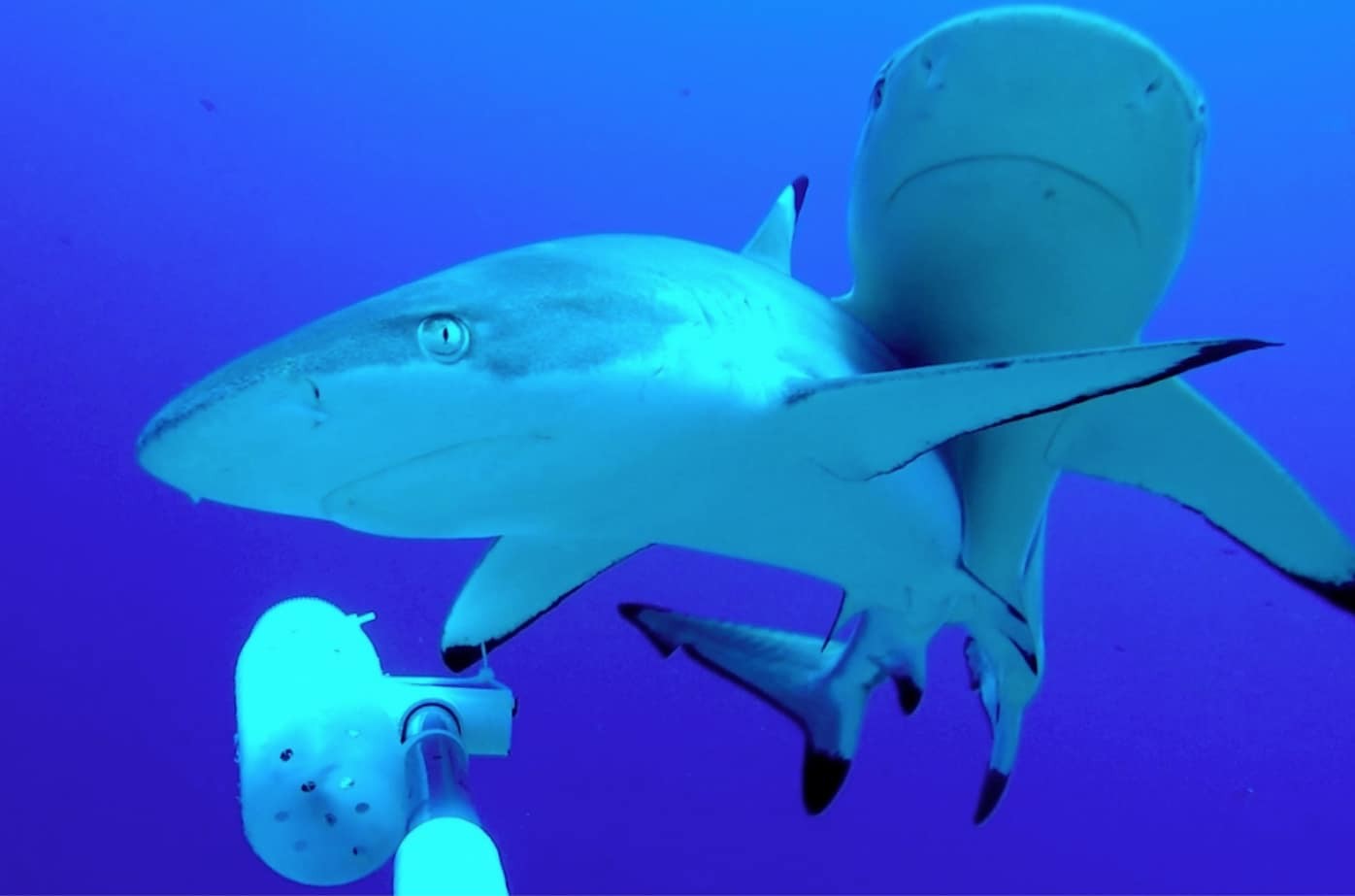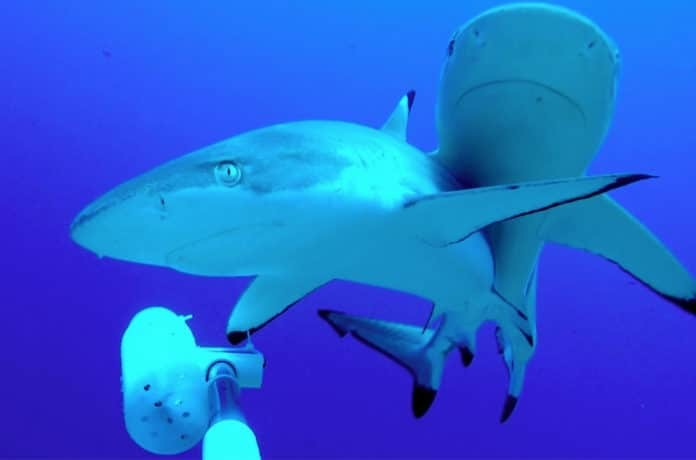As much of an adrenaline rush that diving among sharks may give a human scuba diver, new research has found that the sharks themselves aren’t much affected.
Scientists from the University of California at Santa Barbara and Florida International University wanted to find out whether scuba divers change sharks’ behavior.
Darcy Bradley, a postdoctoral researcher at UCSB’s Bren School of Environmental Science & Management, said:
“Unfortunately, human impacts on shark populations are ubiquitous on our planet. That makes it difficult to separate shark behavioral changes due to scuba diving from behavioral changes caused by other human activities like fishing.”
Consequently, Bradley, the lead author of the study, recently went with other researchers to Palmyra, an atoll in the Central Pacific Ocean to study the effects of human interaction among sharks.

Study co-author Jennifer Caselle, a research biologist at UCSB’s Marine Science Institute, said:
“After reviewing 80 hours of underwater footage taken from video surveys conducted in 2015 — 14 years after Palmyra was established as a wildlife refuge and scientific diving activities began — we found that shark abundance and shark behavior were the same at sites with and without a long history of scuba diving.”
Bradley said that was “good news”:
“It means that well-regulated shark diving tourism doesn’t necessarily undermine shark conservation goals.”
Check out the rest of the story on the UC Santa Barbara website, and for more information on the scientists’ research, it’s in the Marine Ecology Progress Series.

